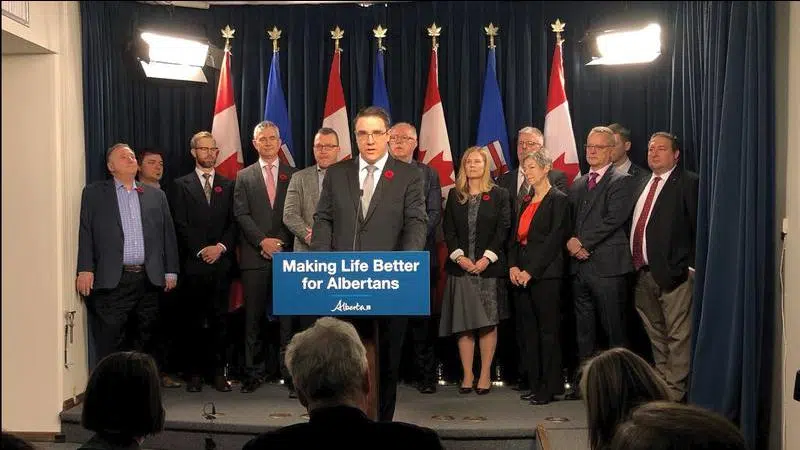
Province introduces new climate change plan focused on large emitters
EDMONTON — The provincial government has unveiled it’s new plan to address climate change in Alberta.
Jason Nixon, Minister of Environment and Parks, has tabled Bill 19, which would create the Technology Innovation and Emissions Reduction (TIER) system. It would replace the Carbon Competitiveness incentive program established by the NDP.
“Alberta has been a leader on emission reductions,” Nixon said during a news conference, surrounded by industry representatives. “We have led the way the way on this for a long time, and many of the companies behind me right now have been part of that lead.
“We were clear in our platform that we would work with our largest emitters, that we saw our way forward on the climate change file was to focus on technology and innovation, particularly on the large emitter side, and we will continue down that path, because that’s what Albertans voted for, and that’s what we think is the best path forward for our province.”


